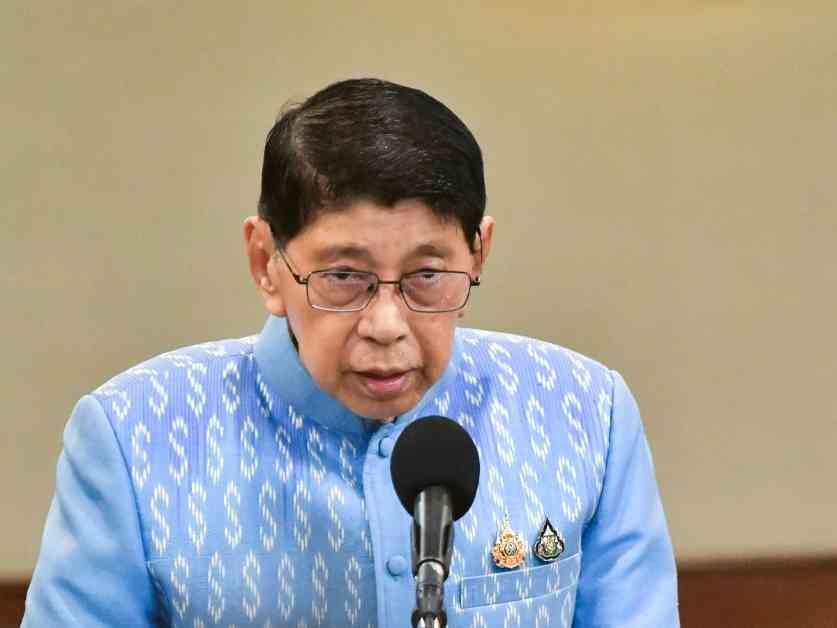**Cabinet Duties After ‘Setha’ Removed from Prime Minister by Court**
Following the recent ruling by the Constitutional Court to remove ‘Setha’ from the position of Prime Minister, it is important to understand the implications of this decision on the duties of the Cabinet. In a press conference held today (August 15, 2024), Deputy Prime Minister and Commerce Minister, Phumithorn Wechsachai, delegated the task of explaining the Cabinet’s duties to Wisanu Kreungam. Wisanu outlined key points regarding the current situation and the responsibilities of the Cabinet moving forward.
**New Responsibilities**
One of the primary responsibilities of the Cabinet is to appoint a Deputy Prime Minister to act on behalf of the Prime Minister in cases where the Prime Minister is unable to fulfill their duties. This is particularly important in situations where the Prime Minister is no longer in office or has been disqualified from holding the position. In such cases, a new Deputy Prime Minister must be appointed to ensure the smooth functioning of the government.
Furthermore, the Cabinet is also tasked with discussing and assigning various positions within the government, both at the level of the Prime Minister and other Ministers. It is important to note that any positions previously held by ‘Setha’ must be vacated, and new appointments must be made to fill these roles. This includes positions such as Secretary to the Prime Minister, Deputy Secretary to the Prime Minister, and other advisory roles within the Prime Minister’s office.
**Continuity in Governance**
Despite the changes in leadership, it is crucial for the government to maintain continuity in governance and ensure that essential functions are carried out without interruption. This includes the approval of budgets, policy decisions, and other critical matters that require the attention of the Cabinet. While new appointments may be made to fill vacant positions, it is important for the government to prioritize stability and efficiency in its operations.
In his address, Wisanu emphasized the importance of maintaining stability and continuity in governance during this transitional period. He stressed the need for the Cabinet to work together cohesively and address any challenges that may arise as a result of the recent changes in leadership.
**Challenges and Opportunities**
While the removal of ‘Setha’ from the position of Prime Minister presents certain challenges, it also opens up new opportunities for the government to reassess its priorities and reevaluate its policies. This is an opportunity for the Cabinet to demonstrate its ability to adapt to changing circumstances and steer the country in the right direction.
One of the key challenges facing the Cabinet is the appointment of new officials to fill vacant positions left by ‘Setha.’ It is crucial for the government to appoint qualified individuals who can effectively carry out their duties and contribute to the overall functioning of the government.
Additionally, the Cabinet must address pressing issues such as the digital economy, social welfare, and environmental conservation. These are critical areas that require immediate attention and strategic planning to ensure the well-being of the country and its citizens.
**Conclusion**
In conclusion, the recent ruling by the Constitutional Court to remove ‘Setha’ from the position of Prime Minister has significant implications for the duties of the Cabinet. It is essential for the government to prioritize stability, continuity, and effective governance during this transitional period. By appointing qualified officials, addressing key issues, and working together cohesively, the Cabinet can navigate these challenges and seize the opportunities that lie ahead.




















